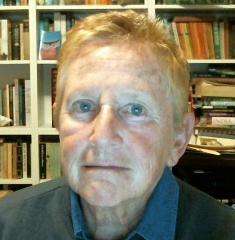About the time Wagner was completing Götterdämmerung, it's said that Bendigo was the richest city in the world, thanks to sitting on a pile of gold. How appropriate! These days, this is mainly evident in its gracious architecture both public and domestic, including the splendid theatre, fashioned out of an old gaol. In this culminating chapter of Melbourne Opera’s Ring Cycle in Bendigo, Suzanne Chaundy’s direction makes crystal clear the intricacies of the betrayals and delusions that bring about this Twilight of the Gods, in consort with the excellent singing and acting of the all-Australian cast. The effective set continued to do its good work, particularly in depicting the Gibichung Hall, creating an impression of sumptuousness with minimal effect, mainly golden drapes around the space, with a river vista now sunny, now dark and foreboding.
This time around the orchestra had it together under Anthony Negus, with rousing brass and smooth string playing, and attractive woodwinds. One of the most exciting musical passages in opera, Siegfried’s Funeral March, was exceptionally well-handled. These forces were joined by the Melbourne Opera Chorus, men and women, entailing a lot more work for the former. Clad in black and wielding swords or spears, they sang with rousing discipline, creating a formidable phalanx around Siegfried and Gunther. The women have only about a dozen words to sing all up, but looked good in long jewel-coloured gowns, and acted well, in responding to the apparently demented Brünnhilde with bewilderment and then rejection.
Bradley Daley’s Siegfried continued to impress, with his fine even, ringing tenor, indefatigable energy and convincing acting. Antoinette Halloren returned as Brünnhilde, equally impressive in her personification of the fiery, betrayed wife and ultimately commanding fateful figure who brings about the demise of the gods. Vocally she had power to spare and thrilling high notes, but the vibrato mitigated against the more delicate aspects of the role as written (where were the trills?).
Another welcome return was Deborah Humble, seen in previous instalments as Erda, and here in the cameo but significant role of Waltraute, deploying her richly coloured mezzo with fine feeling and phrasing. Her erstwhile daughters the Norns pop up at the beginning of Götterdämmerung not adding much in the way of plot – they do let us know the gods are going to come to no good end but we know that from the title, let alone heavy hints in the text – but creating a nice prophetic atmosphere. This Macbeth-like trio was well sung by Dimity Shepherd, Jordan Kahler and a very fine soprano contribution from Eleanor Greenwood.
Simon Meadows continued his nastily convincing Alberich with his firm baritone, and Steven Gallup, an excellent Fafner, created an equally nasty, but resonantly sung, Hagen. His Gibich siblings, Gunther and Gutrune – the latter a particularly thankless role it always seems – were sung by Christopher Hillier and Kerry Gill, dramatically convincing, but seeming somewhat underpowered vocally in the present company.
At the end, when we are right back where we started – in the Rhine (thanks again Anna Russell) – the Rhinemaidens returned – Rebecca Rashleigh, Naomi Flatman and Karen Van Spall – blending melodiously, with their two airy sisters again swaying high above the stage. As the last notes of the Liebeserlösung floated away, a momentary silence was followed by a standing ovation.




